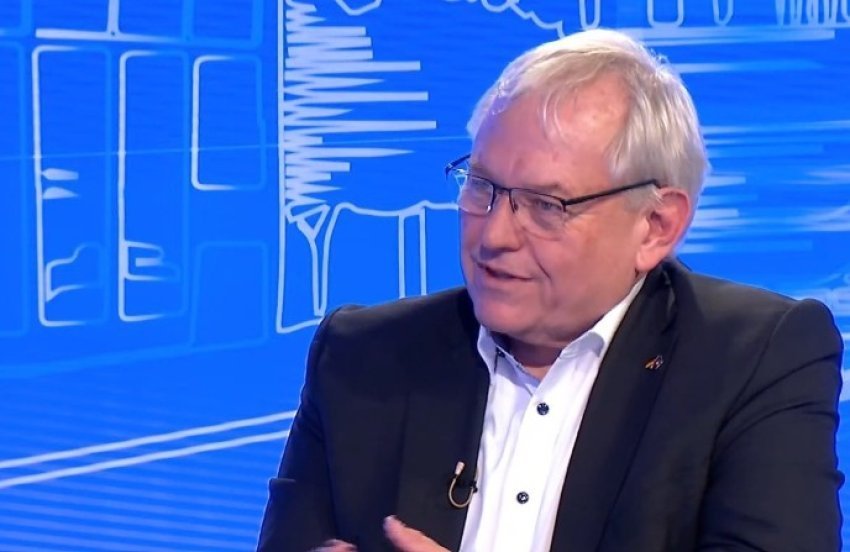Thomas Hacker, a Bundestag MP from the FDP party, which is part of the governing coalition with Olaf Scholz’s Social Democrats and Foreign Minister Annalena Baerbock’s Greens, stated that Germany is working with the EU states that do not recognize Kosovo.
In an interview with “Info Magazine,” he mentioned that the Berlin Process Summit, held earlier this week, was a festive meeting.
“We have achieved success after many years for a kind of common market in the Western Balkans. From this summit, we are starting a new beginning, and for us, this is a great success.”
When asked whether there is silence from Germany, from European Commission President Ursula von der Leyen, and from Hungary as the presiding country of the EU Council, regarding Prime Minister Albin Kurti’s request at the Berlin Process Summit to lift measures against Kosovo and grant it candidate status for the EU, Hacker said:
“The Prime Minister of Hungary has a personal opinion on everything happening, and he has a personal agenda. He presides over the EU, and it will remain this way until the end. Albin Kurti knows very well what to ask for and understands the situation within the EU. We still have members that do not recognize Kosovo as an independent state, and as long as we have this situation with some member states, we must maintain such silence. On the other hand, Germany has, in many cases, supported Kosovo in the Council of Europe, in the EU, and we are working with other member states to recognize Kosovo so that further steps can be taken. The success of the Summit was made possible precisely because Kosovo agreed at the last moment to ease some measures, making the Summit successful.”
The German MP was again asked about “Chancellor Scholz’s silence,” to which he responded: “Chancellor Scholz is not silent, nor should he be. However, there are specific circumstances because when he speaks about the EU, there is no offer for Kosovo—not because of Germany but due to other member states. When this government was appointed three years ago, we began to reinvigorate the Berlin Process, which had been dormant for a long time, by appointing a delegate for the Western Balkans, my former colleague Manuel Sarrazin. It took many conversations and persuasion with many people because we believe that the Western Balkans only have opportunities if they overcome past situations. If they overcome the current enmities, they must accept and tolerate each other if they wish to be part of the EU. We demand this from Chancellor Scholz and from our other Bundestag colleagues who frequently travel to the region.”







